
by Kathryn de Bruin | May 1, 2020 | Crisis
Will this COVOID-19 Crisis Bring Trauma?
Many of us are concerned about getting traumatized by this crisis. People who have already experienced PTSD in their lives are more susceptible to additional trauma, while many
of us have no prior experience with it and are wondering if something like this could cause long term effects. These are important questions!
So, let’s learn about what trauma is and more importantly, how we can prevent it.
In the simplest of explanations, trauma occurs when our resources are completely overwhelmed by our stressors, and we are powerless to do anything about it. This leaves us without control, and we are hurt as a consequence. Think of it as a continuum between calm on one side, stress in the middle, and then trauma on the far end. Stress can be good and bad for us. Eu-stress activates us, it gets us going, it motivates us. But too much stress starts to overwhelm us. If the stress continues, we can feel traumatized. Some people experience this and develop Post-Traumatic Stress Disorder, while others are able to bounce back.
An environmental stressor like COVOID-19 need not traumatize us, as long as we keep up our resources and don’t get into a situation where we feel completely powerless. An antidote to trauma and stress is finding ways to stay in control, and to find meaning in what we are facing.
If you are religious, you might find yourself asking, “God, what would you have me learn during this trial?”. Others challenge themselves to focus on what they can walk away with as a result of the trial, “There is much that I can’t control, but I can control what I eat, how I exercise, my immune system, whether or not I leave my property.” Generally speaking we have control over ourselves, our outlook, our behaviors, our bodies. Focus on these things.
The other determinant in what becomes traumatic, is the kind of support you have. So that if you have felt completely overtaken by the trial or stressor, you are able to find someone to talk to about what you have been through. Or if you do get very ill, and are overcome by feeling weak and powerless, you are able to find emotional and social support after the fact.
Think of trauma like being forced to eat a heavy meal of rice and beans and meat. These are foods that generally don’t digest well together. They sit in your stomach and feel heavy, and they cause a bad case of indigestion. You have to adjust yourself, you lie down on the couch for hours, you eat Tums, and you moan and groan during your belly aches. The question is whether or not your stomach acids will be able to break down this very heavy meal or not. So you give yourself space and time, and give your body every resource to aid in the digesting of this meal. If something has overwhelmed your resources, do everything you can to digest it emotionally: Talk about it, write about it, process it slowly until you can look back at it and learn some lessons from having gone through it.
Finding meaning in spite of what has happened is the key to bypassing trauma. This is when the experience no longer owns you, but you own it because you have learned and grown because of it!
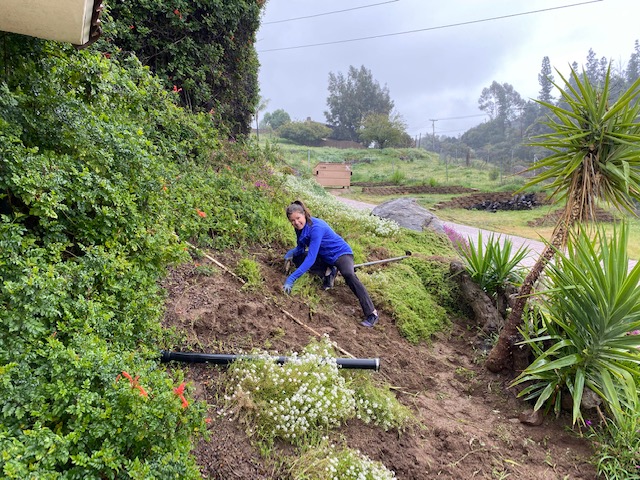
by Kathryn de Bruin | Apr 29, 2020 | Crisis
My answer to this is: Only deal with what challenges are truly needed during a time of crisis.
The only thing absolutely necessary right now is getting through this time period! This is your foremost job, to survive this crisis and to come through it as well as you can.
Adjusting your life to take on this job is most important. This is a time to lay other projects aside, unless taking those on serves you in some way, like a distraction or giving you something that you can control amidst an especially chaotic time.
It isn’t a time to dig up old injuries, or to work through more than you need to. It’s a time to be kind and gentle to yourself, and to build yourself up as much as you can.
Are you one of those people who loves a challenge? When the going gets tough, the tough get going. You are goal-oriented, and if you have something to work on or to achieve, you are in a happy place. When you are in a time of crisis, you get tougher and you take on an additional challenges to keep you in a place of feeling a sense of purpose. I’m one of these people. During this crisis, I’ve taken on the challenge of transforming my garden. I’m using my time off to destroy the weeds in my garden, and to claim back our beautiful land. When this is all over, I am determined to be appreciative of this time taken to transform my amazing garden!
What helps you to feel strong and in control?
Maybe you are just in need of a goal to focus you during this time of crisis. I personally find that I do better emotionally on the days that I exercise, eat well, sleep well and check off some of those goals. If you find yourself in a similar space of needing to challenge yourself, perhaps you can redirect that challenge into something beneficial. I would love to hear about any fun goals you may have for conquering this quarantine time, either personally for yourself or with your families! Don’t worry about it being anything cool or fancy, as I said, the most important thing is to get through and stay healthy!
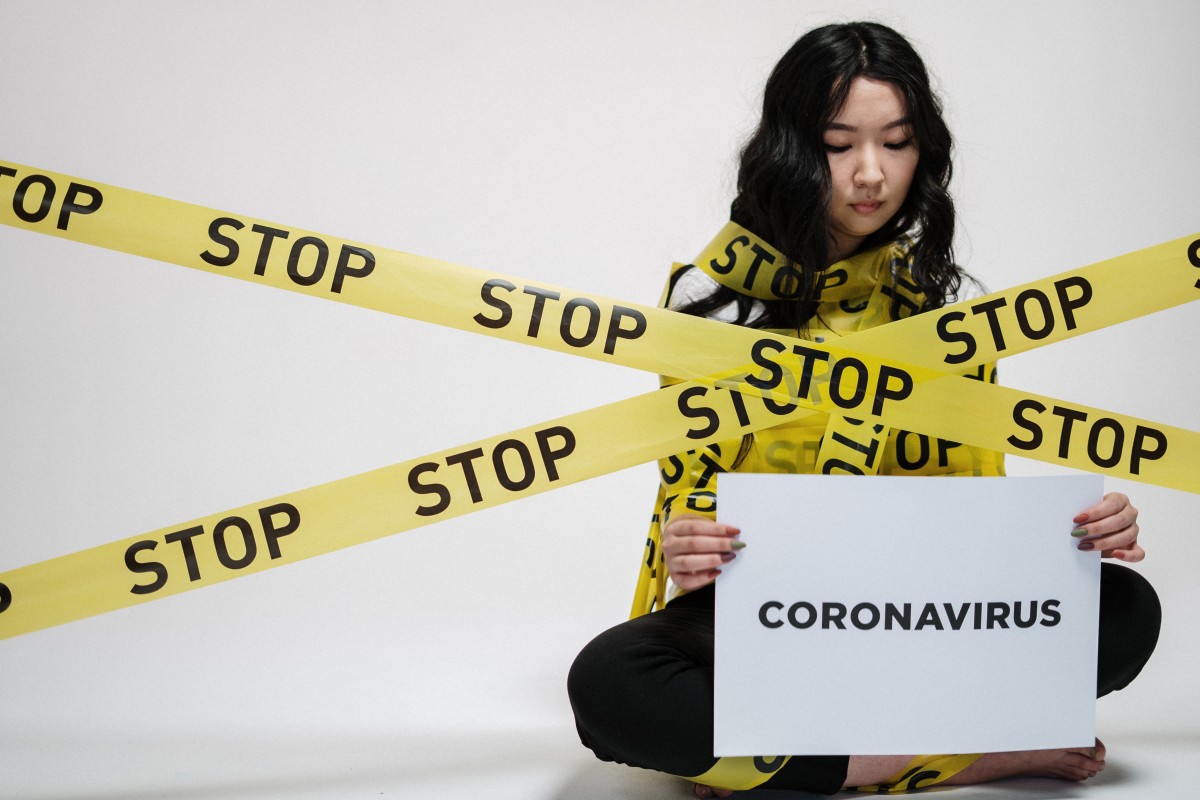
by Kathryn de Bruin | Apr 23, 2020 | Crisis
Is fear normal right now? What hard conversations should we be having with our families?
To answer those questions – Yes, I’d be surprised if you weren’t at least a little fearful with all that’s been going on. We should all be concerned about COVID-19, not only for our own lives but also for keeping those around us safe.
Fear motivates us to action. It gets our blood pumping so that we can move if we need to, it causes us to focus our thinking about the threat at hand. And essentially fear is rational when there is a real threat that we are facing. Fear only becomes Anxiety when it shows up at the wrong time, for the wrong reason, and for the wrong duration.
So what is the difference between Anxiety and Fear? Fear is rational and necessary, Anxiety is not. Fear activates us in a necessary way, whilst anxiety drains our resources. They both put you into a state of fight, flight and freeze, only this isn’t needed when you’re only facing a perceived fear.
Now, you might be both worried and anxious about this virus. Worried for a good reason – but probably thinking about it too much. This virus is real, and it requires attention to how we manage our lives as a result.
In fact, there are very important conversations to be had in our families at a time like this. If you are living in a larger family system, conversations might center around the kinds of boundaries and rules you are all going to engage in. Is everyone comfortable with the social distancing that the others are doing? If your loved ones continue to expose themselves, have you let them know how their decisions affect you? Have you talked with them in an honest and vulnerable way about your fear of losing them? Sometimes thinking about your worst fear, enables you to know what needs to be said now. If your worst fear was to happen and you lost them, what do you wish you had said to them?
If you have people who are high-risk in your family, have you talked with them about safety planning? Do you have medicine on hand for them? Do you have an area in your living quarters that you will use as a sick-bay? Do you know where to find their passwords or other information in case they are unresponsive? Do you know that you might not be able to accompany them into the hospital should they have to go? These are the realities that we are facing, they are problems that have to be solved. And fear helps you to think these through and to come up an action plan. It helps you to be as ready as you can be.
Tell the anxiety that comes up that you are in control. You have taken the threat seriously, you have an action plan, and now it’s time to rest and relax so that you’re ready when you need to be.
Once you have this plan in place, then it’s time to make sure you don’t get anxious. No need to cause yourself unnecessary worry and drain your resources. If you do find yourself start to meander into anxious territory, I have a blog with an Anxiety Journal Template as well as Breathing Exercises to Help with Anxiety should you need those resources. Myself and many therapists are offering Telehealth services right now during this pandemic. I invite you to set up an appointment. Thinking of you all during this especially fearful time, please take advantage of available resources – you are not alone.
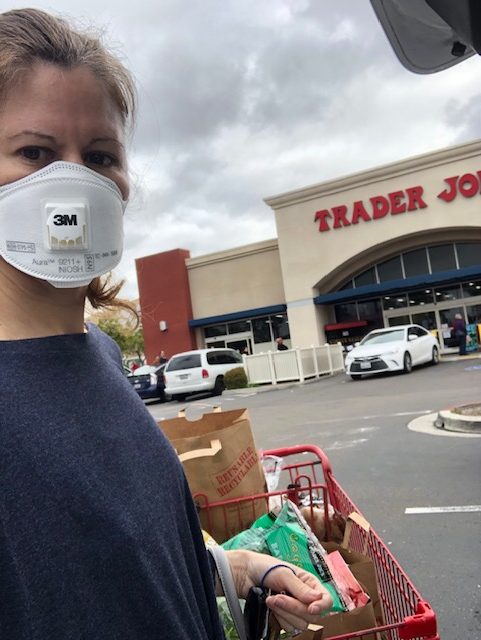
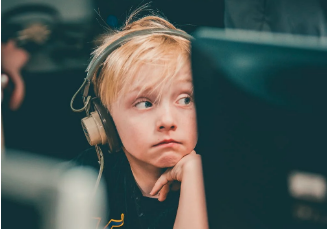
by Kathryn de Bruin | Apr 21, 2020 | Crisis
While some deal with stress and crisis by using Anxious Coping Strategies, some go in a different direction still, and use more withdrawn coping strategies.
People with withdrawn strategies are able to compartmentalize and bury their feelings deep inside, so much so that they may come across as preoccupied and emotionally vacant. They are likely to get very busy with something tangible that keeps them away from relationships and from any feelings. They may focus on things that give them a sense of control. If you ask them how they are doing, they might seem overly bright, positive, and encouraging because they are so far removed from their feelings that they think that everything is just rosy. They are unlikely to want to talk about any feelings related to this crisis. I think about a loved one who would likely say “Nothing is going on”, or “I’m fine” if I inquired about how they are doing.
If you are parenting a child with a withdrawn strategy you are likely guessing how they are doing, or you’re thinking that they are just fine. The distance that they put in their relationships is helpful for them to keep intensity and feelings at bay. You don’t have to feel something that you aren’t experiencing after all.
So how do you support someone then when they’re using these withdrawn strategies to cope?
- Let them be – give them space, respect that talking about it and feeling it makes it worse for them.
- Let them stay busy in ways they choose to do so – give them tasks, focus on things outside of themselves like games, chores, work.
- Focus on thoughts instead of on feelings. If you need to talk about your feeling and vent, keep it short and sweet, or contained.
- Keep things simple, superficial, less intense. If you need to talk about something serious do it while walking or while cooking, or while playing a game.
- If you need to communicate something personal and serious, consider doing it in a text or an email. This way they have space to consider it without feeling the additional pressure of answering you in the moment.
- Give then opportunities to be successful. Try asking them to strategize and to fix something.
- Be specific about what you need help in. Those who use this strategy especially like to get things right, and to be helpful.
Hopefully diving into these three most commonly used coping strategies this past week will be useful information to better know those you love – and utilize these tips when communicating and dealing with especially stressful situations. As you know, everyone handles things differently, and knowing how to approach a topic and what best soothes your loved one, can make all the difference.

by Kathryn de Bruin | Apr 17, 2020 | Crisis
In our last post, we identified Secure Coping Characteristics. While some may fall under that category, chances are yourself or someone else in your family naturally utilizes anxious coping strategies during stressful and scary situations.
Those who use anxious strategies to cope in crisis are likely to feel extreme amounts of pain and fear, and are likely to demonstrate this visibly through feeling anxious, getting loud and possibly angry, gesticulating.
Basically, they wear their heart on their sleeve. And yes, they experience feelings more intensely than others do. They are easily overwhelmed with their emotions and need help soothing themselves. They look to others to help them to do so.
Anxious children may get overstimulated, overexcited, be more boisterous or active than usual. I think about a family member who could easily give me a long list of grievances if I asked her how she was doing right now. If you are parenting a child with an anxious strategy, you probably feel like they need a great deal from you, and you might be exhausted in your attempts to comfort them. If there is something to be fearful of, this person will be the one to pick it up. Often times, we associate terms like “Worry Magnet”, even possibly “Drama Queen” with this anxious coping strategy.
So how do you support someone who has Anxious Coping Skills?
- Physical Contact – Give hugs, massages, or encouragements to run off the energy. A couple good exercises for this are: “I’m so upset with you, let’s stomp the ground as hard as we can”, “Give me all your worry and pain right now by hugging me as hard as you can”.
- Opportunities to vent – Give them a grumble session. Some good exercises for this may be: “If you could grumble for a minute as much as you could, what would you say?” “If you could change 1 thing right now, what would it be?” journaling is helpful (how I feel; 0 – 10 how intense is the feeling; what am I thinking; what am I doing; something I would change; who am I telling about it).
After you’ve had a good talk, it may be helpful to refocus them onto something else, using phrases like “Wash your face with cold water and then let’s find something else to do”. Encourage them to focus on something that they can control: “You have control over your mind, your thoughts, your behaviors, your immune system, and certain parts of your environment.”
Sometimes it just takes someone to come alongside them in their struggles of anxiety, to show them some ways to deal with it in a healthy way, and give them tools to move forward. This can be incredibly helpful training for identifying emotions and redirecting to healthy secure strategies later on in life!
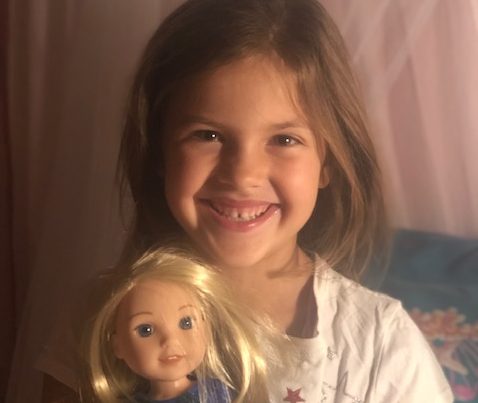
by Kathryn de Bruin | Apr 9, 2020 | Crisis
We all have inherent strategies for coping. Coping Strategies are especially important in times of crisis, because they keep us feeling safe and in control of our feelings.
One of the most underutilized tools in relationships is knowing what your loved one’s strategies are.
If you know their strategies, then you will be able to work out how to support your loved ones in this time of crisis. Comfort will look different to different people. Chances are you’ve already talked to your loved ones about how they handle stress, as we talked about in our last post. Click here to view great conversation starters to talk about stress with your families. But learning coping strategies adds another tool in your toolkit to help you better understand your relationships, and so that you know what to do to be effective and helpful in the emotional lives of your loved ones during this time. There are 3 more common strategies that I want to discuss with you briefly. We will have a blog breakdown of each of these, with this first one going over what a secure coping strategy typically looks like in relationships.
The 3 Common Coping Strategies Are: Secure, Anxious or Withdrawn.
Some folks have Secure Strategies which means they feel a range of feelings, but to a more limited degree than those with anxious strategies. They tend to be more hopeful and to have better problem-solving abilities as well as abilities to be creative when things are tough. They feel confident in sharing openly how they are doing, and they tend to have people that they can talk to in times of distress, and so they get more comfort and support. They are also soothed more easily and more quickly. They “bounce back”.
I think of my youngest daughter who will easily jump onto my lap and say exactly what she needs in that moment, for example, “Mommy, I need a hug”. But then the moment she feels better, she’ll be on her way again. If you’re a parent to a secure child, you are likely to know exactly how they are doing and this is because they let you know. Just because they are a have a secure coping strategy, doesn’t mean that they don’t have times they experience the other range of feelings and deal with crisis in negative ways. The secure strategy is the most flexible one, so people with secure might sometimes withdraw and other times be anxious. But overall they are able to find balance.







